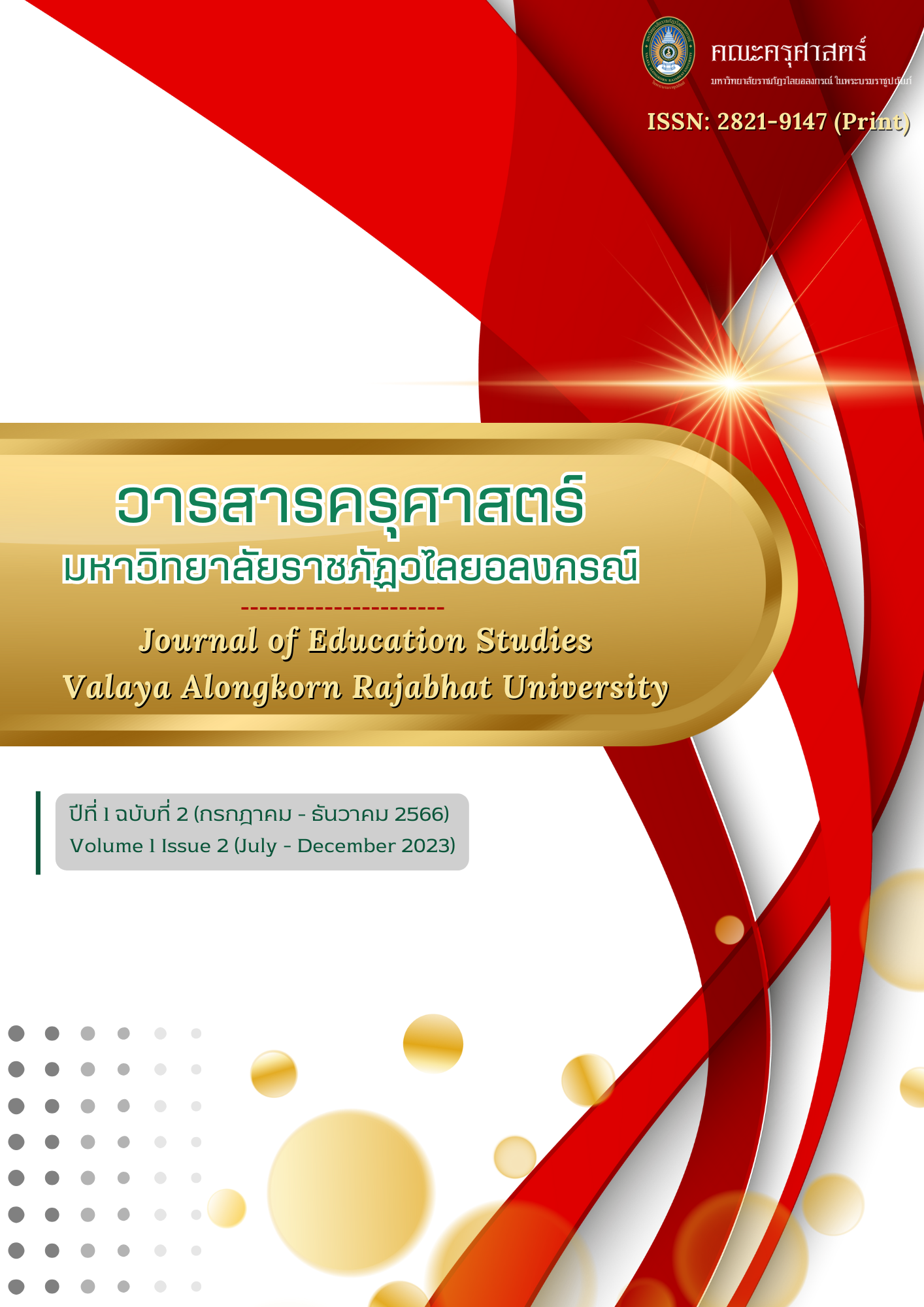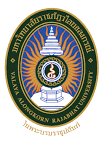องค์ความรู้ด้านเนื้อหาผนวกวิธีสอนและเทคโนโลยีสำหรับนักศึกษาครูชีววิทยา
คำสำคัญ:
ความรู้ด้านเนื้อหาผนวกวิธีสอน, ความรู้ด้านเนื้อหาผนวกวิธีสอนและเทคโนโลยี, นักศึกษาครูชีววิทยา, วิชาชีววิทยาบทคัดย่อ
บทความนี้มีวัตถุประสงค์เพื่อนำเสนอองค์ความรู้ด้านเนื้อหาผนวกวิธีสอนและเทคโนโลยีที่จำเป็นต่อนักศึกษาครูชีววิทยา ผู้สอนชีววิทยาจะต้องมีความรู้ในเนื้อหาชีววิทยา และมีความรู้ว่าวิธีการสอนใดบ้างที่สอดคล้องกับเนื้อหาชีววิทยาที่ตนเองสอน เพื่อนำไปสู่ความเข้าใจว่าจะจัดกระทำ หรือนำเสนอหัวข้อที่เฉพาะเจาะจงเพื่อให้ผู้เรียนที่มีความสนใจและความสามารถแตกต่างกันเข้าใจ นอกจากนี้ผู้สอนสามารถผนวกวิธีการสอนที่เหมาะสมและสอดคล้องกับเนื้อหาที่ตนเองสอน และการจัดการเรียนการสอนโดยใช้เทคโนโลยีจะสามารถพัฒนาทักษะการคิดวิเคราะห์ และทักษะการแก้ปัญหาของนักเรียน นักศึกษาครูชีววิทยาเป็นครูชีววิทยาในอนาคตจึงควรมีความรู้ ความเข้าใจเชิงลึกเกี่ยวกับเนื้อหาชีววิทยา รวมทั้งมีความรู้ความเข้าใจเกี่ยว กับวิธีการสอน เทคนิคการจัดกิจกรรมการเรียนรู้ และสามารถบรูณาการ หรือผนวกความรู้ในเนื้อหาชีววิทยากับวิธีการสอน ความรู้ความเข้าใจการใช้เครื่องมือทางเทคโนโลยี รวมถึงทักษะการใช้เครื่องมืออุปกรณ์ทางชีววิทยาเพื่อศึกษาเนื้อหาชีววิทยา โดยคณะผู้จัดทำได้ใช้การศึกษาเอกสาร (Documentary Research) ทบทวนวรรณกรรมแนวคิด ทฤษฎี งานวิจัย และบทความวิชาการที่เกี่ยวข้องผลการศึกษาเรื่ององค์ความรู้ด้านเนื้อหาผนวกวิธีสอนและเทคโนโลยีที่จำเป็นต่อนักศึกษาครูชีววิทยา
เอกสารอ้างอิง
กระทรวงศึกษาธิการ. (2551). หลักสูตรแกนกลางการศึกษาขั้นพื้นฐานพุทธศักราช 2551. กรุงเทพฯ: กระทรวงศึกษาธิการ
โชติกุล รินลา ธิติยา บงกชเพชร และวิภารัตน์ เชื้อชวดชัยสิทธิ์. (2565). การรับรู้ความรู้ในเนื้อหาผนวกวิธี สอนและเทคโนโลยีของครูวิทยาศาสตร์: กรณีศึกษาโรงเรียนขยายโอกาสทางการศึกษาแห่งหนึ่งในจังหวัดชัยภูมิ. วารสารเทคโนโลยีสุรนารี. 19(1).
ฐิติมา ญาณะวงษา. (2564). หลักสูตรที่เน้นผลลัพธ์: แนวทางใหม่สำหรับหลักสูตรอุดมศึกษา. วารสารมนุษยศาสตร์และสังคมศาสตร์ มหาวิทยาลัยราชภัฏพิบูลสงคราม. 15(2).
ณัฐกานต์ เทพบำรุง และจรินทร อุ่มไกร. (2559). การจัดการเรียนรู้แบบ TPACK MODEL ด้วยเทคนิคความเป็นจริงเสริมสามมิติในรายวิชาวิทยาศาสตร์ สำหรับนักเรียนชั้นมัธยมศึกษาปีที่ 1 กรณีศึกษาโรงเรียนบ้านตรอกสะเดา. วารสารโครงงานวิทยาการคอมพิวเตอร์และเทคโนโลยีสารสนเทศ. 2(1).
นันทวัน พัวพัน สิรินภา กิจเกื้อกูล และสกนธ์ชัย ชะนูนันท์. (2565). การพัฒนารายวิชาการสอนแนวใหม่ที่ส่งเสริมความรู้เนื้อหาผนวกวิธีสอนและเทคโนโลยีของนักศึกษาครูวิทยาศาสตร์: การวิจัยปฏิบัติการเชิงวิพากษ์แบบมีส่วนร่วม. วารสารศึกษาศาสตร์ มหาวิทยาลัยนเรศวร. 24(2).
ประสาท เนืองเฉลิม. (2558). การเรียนรู้วิทยาศาสตร์ในศตวรรษที่ 21. กรุงเทพฯ: สำนักพิมพ์แห่งจุฬาลงกรณ์มหาวิทยาลัย.
วิชญานี เรืองสวัสดิ์ ศิริรัตน์ ศรีสะอาด และนาตยา ปิลันธนานนท์. (2565). TPACK ในการเรียนรู้วิทยาศาสตร์: TPACK ในชีววิทยา. วารสารครุศาสตร์ปริทรรศน์ฯ. 19(1).
สุวัทนา สงวนรัตน์ และชวน ภารังกูล. (2564). หลักสูตรและการเรียนการสอนฐานสมรรถนะในสถานศึกษา. วารสารสิรินธรปริทรรศน์. 22(2).
พาสนา จุลรัตน์. (2561). การจัดการเรียนรู้สำหรับผู้เรียนในยุค Thailand 4.0. Veridian E-Journal, SilpakornUniversity. 11(2).
ลือชา ลดาชาติ. (2562). ความโน้มเอียงของการสอนวิทยาศาสตร์ของนิสิตครูชีววิทยาชั้นปีที่ 1. วารสารศึกษาศาสตร์ มหาวิทยาลัยสงขลานครินทร์ วิทยาเขตปัตตานี. 30(1).
สำนักงานสภาพัฒนาการเศรษฐกิจและสังคมแห่งชาติ. (2565). แผนพัฒนาเศรษฐกิจและสังคมแห่งชาติ ฉบับที่ 13 (พ.ศ. 2566 – 2570). http://nscr.nesdc.go.th/wpcontent/uploads/2022/11/plan13-rkt-011165.pdf
สำนักวิชาการและมาตรฐานการศึกษา. (2553). ตัวชี้วัดและสาระการเรียนรู้แกนกลาง กลุ่มสาระการเรียนรู้วิทยาศาสตร์ ตามหลักสูตรแกนกลางการศึกษาขั้นพื้นฐาน พุทธศักราช 2551. กรุงเทพฯ: โรงพิมพ์ชุมนุมสหกรณ์การเกษตรแห่งประเทศไทย จำกัด.
อานุภาพ กำแหงหาญ และศิริเดช สุชีวะ. (2564). การพัฒนาแบบทดสอบความพร้อมของนิสิตนักศึกษาครูวิชาเอกชีววิทยาตามกรอบแนวคิดทีแพค. https://cuir.car.chula.ac.th/bitstream/123456789/52382/1/5783886427.pdf
อรอุมา พันธ์เกตุ. (2565). การพัฒนาความรู้ในเนื้อหาผนวกวิธีีการสอนของนักศึกษาครูชีววิทยาด้วย รูปแบบการเรียนรู้ผ่านกรณีศึกษา. วารสารมหาวิทยาลัยศิลปากร. 42(2).
อรอุมา พันธ์เกตุ นันทรัตน์ เครืออินทร์ และทัศตริน วรรณเกตุศิริ. (2563). การพัฒนาเกณฑ์การประเมินความรู้ในเนื้อหาชีววิทยา ผนวกวิธีการสอนและเทคโนโลยี สําหรับนักศึกษาครูชีววิทยา. วารสารศึกษาศาสตร์ มหาวิทยาลัยสงขลานครินทร์ วิทยาเขตปัตตานี. 31(3).
Auerbach, A. J. J., & Andrews, T. C., (2017). Pedagogical knowledge for active-learning instruction in large undergraduate biology courses: a large-scale qualitative investigation of instructor thinking. International Journal of STEM Education. 5(19).
Günther., S. L., Fleige, J., Belzen, A. U. Z., & Krüger, D. (2018). Using the Case Method to Foster Preservice Biology Teachers’ Content Knowledge and Pedagogical Content Knowledge Related to Models and Modeling. Journal of Science Teacher Education. 30(4).
Koehler, M. J., Mishra, P., Akcaoglu, M., & Rosenberg, J. M. (2009). The Technological Pedagogical Content Knowledge Framework for Teachers and Teacher Educators.
Mishra, P., & Koehler, M. J. (2006). Technological Pedagogical Content Knowledge: A Framework for Teacher Knowledge. Teachers College Record, 108(6).
Koehler, M. T., Mishra P., & Cain W. (2013). What is technological pedagogical content (TPACK)?. Journal of Education, 193(3).
Şen, M., Öztekin, C., & Demirdöğen, B. (2017). Impact of Content Knowledge on Pedagogical Content Knowledge in the Context of Cell Division. Journal of Science Teacher Education. 29(2).
Shulman, L. S. (1986) Those Who Understand: Knowledge Growth in Teaching. Educational Researcher. 15(2).
Tanak, A. (2020). Designing TPACK-based course for preparing student teachers to teach science with technological pedagogical content knowledge. Kasetsart Journal of Social Science. 41(1).









